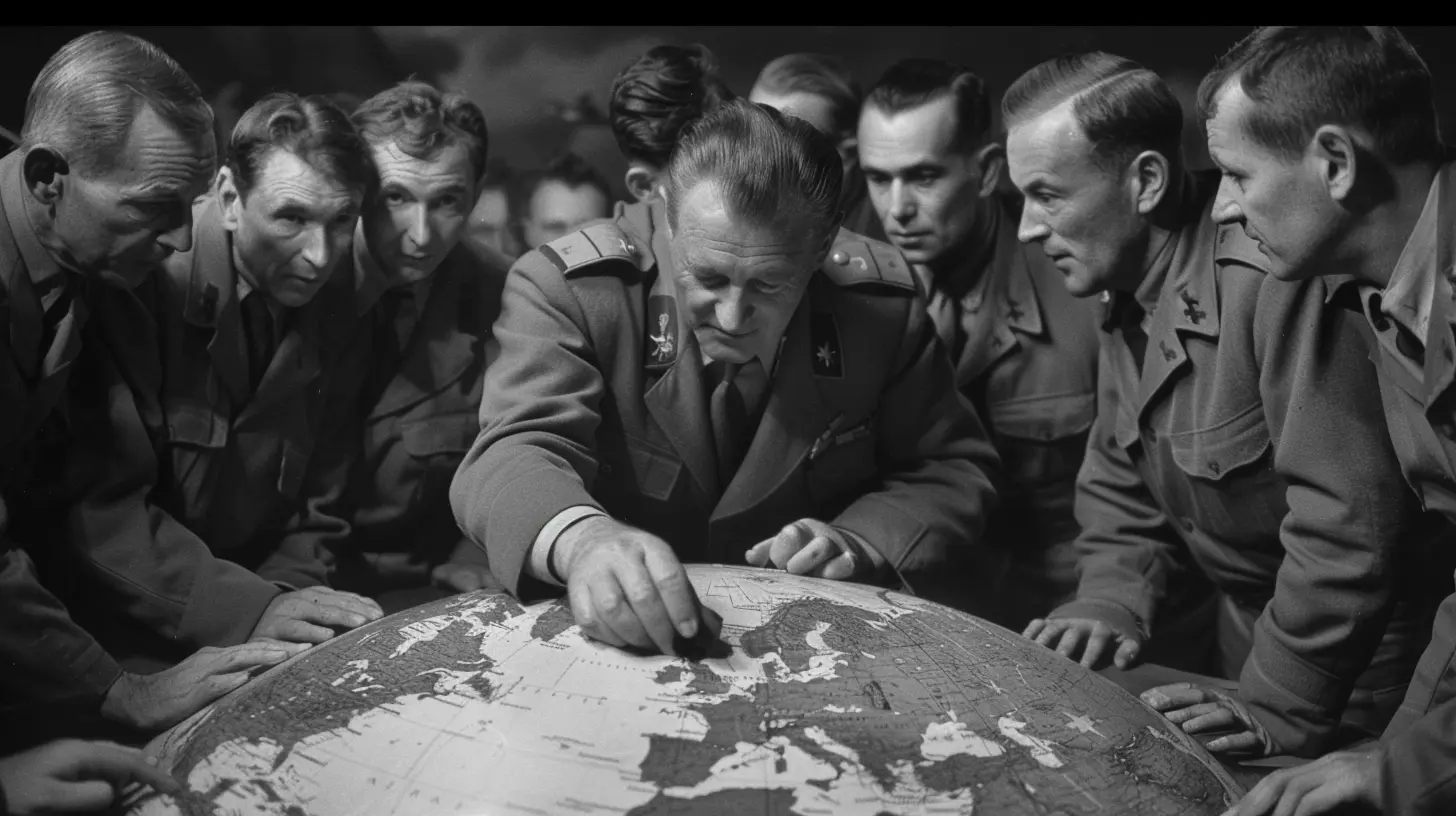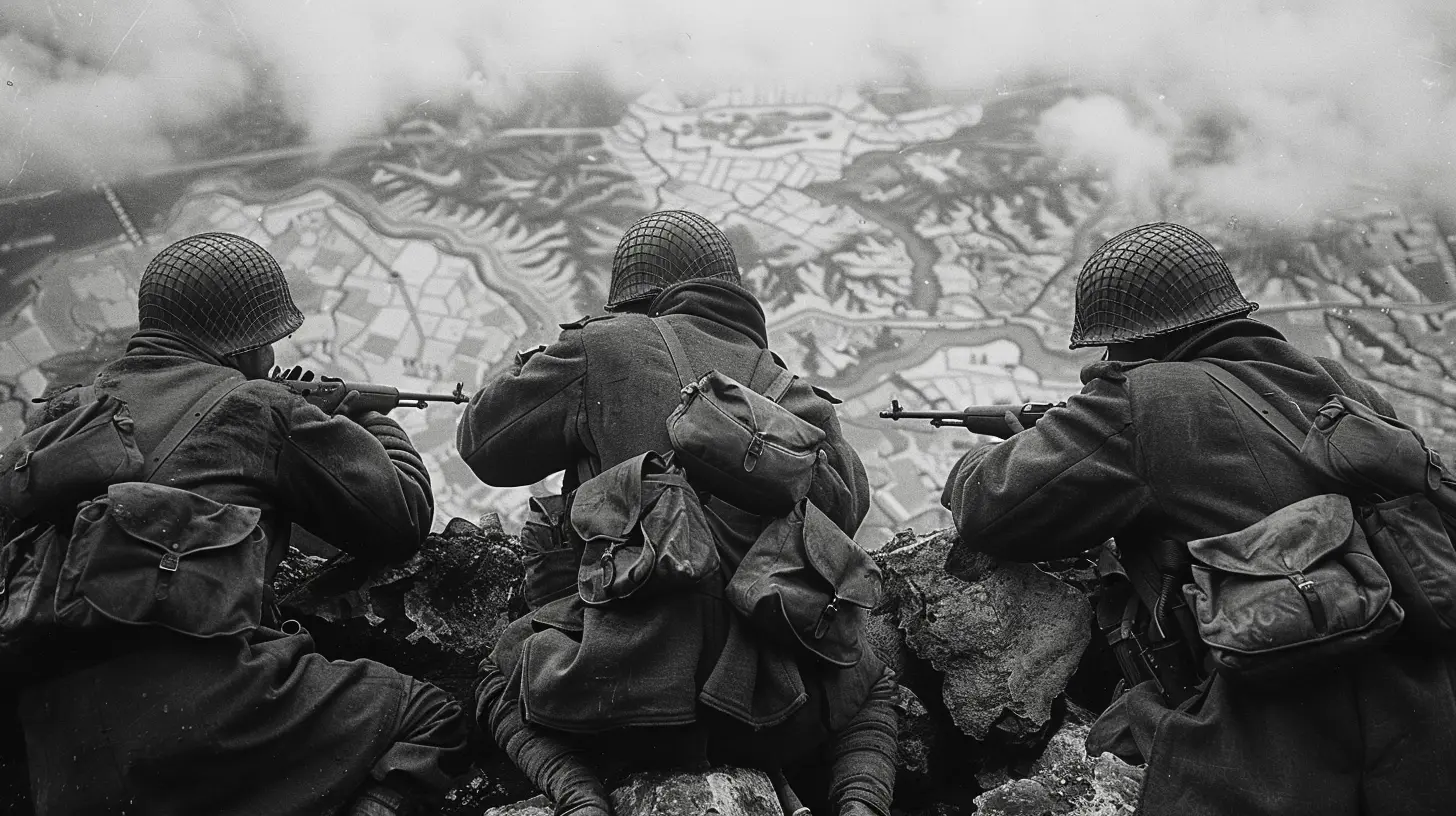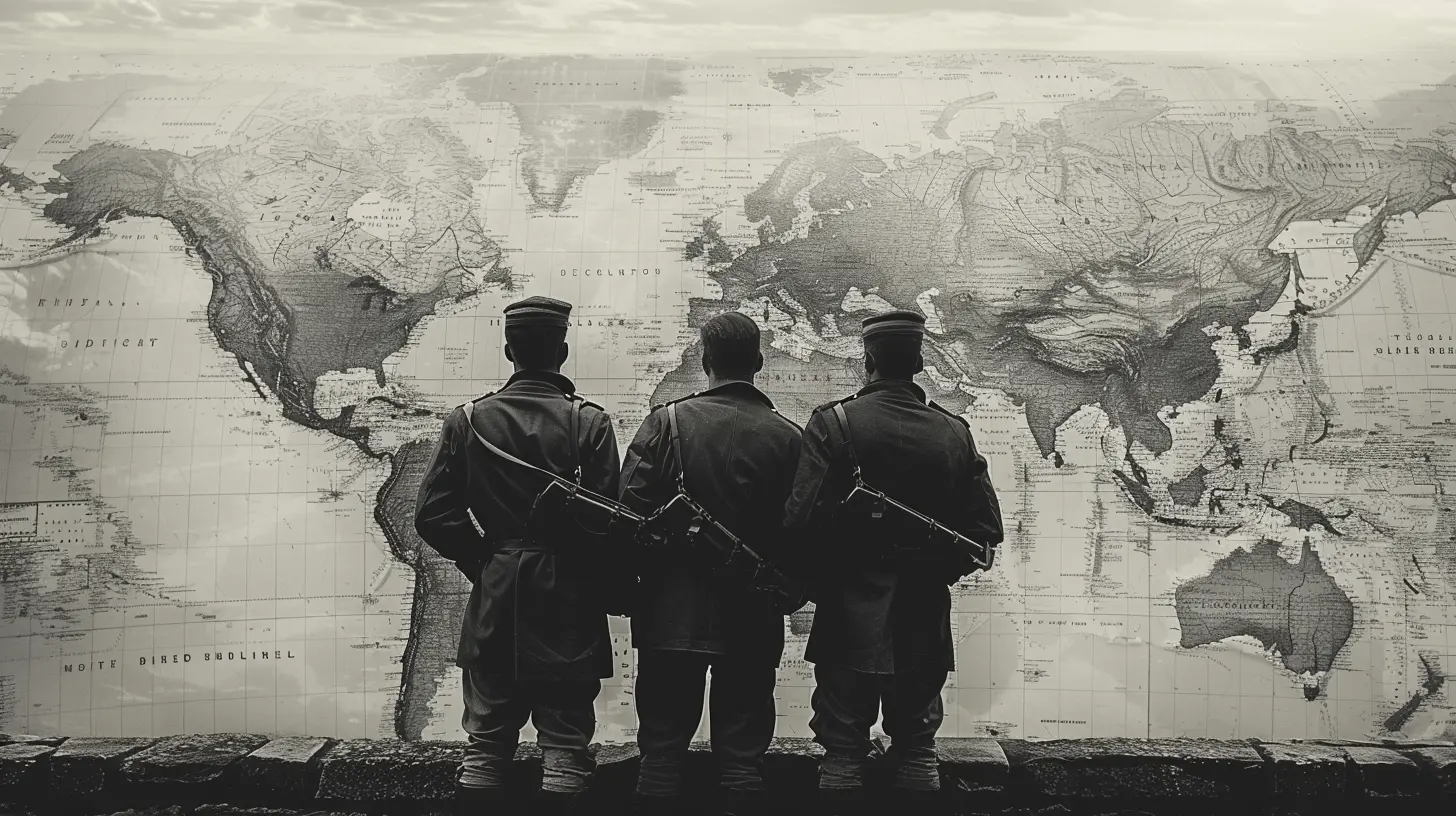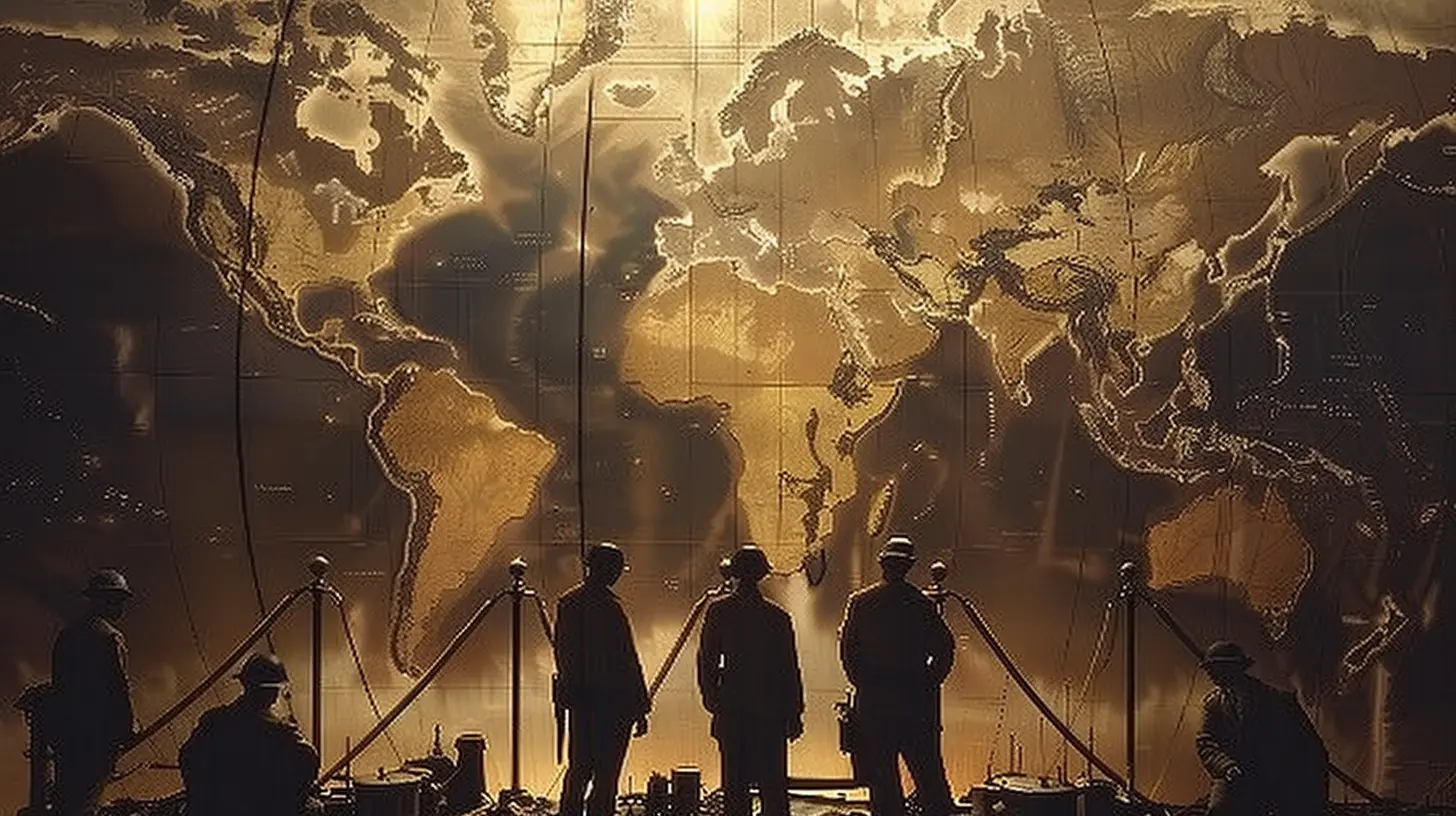How World War II Redefined Global Politics
8 October 2025
World War II wasn’t just the deadliest and most widespread conflict in human history—it was also a massive turning point that reshaped the entire global political landscape. Before the war, empires ruled much of the world, and international politics was a bit like a high-stakes poker game between a few major powers. But after 1945? The whole board changed.
Let’s dig into how World War II flipped the script on global politics, turned allies into enemies, made colonies into countries, and set the stage for the world we live in today.
The World Before the War: Empires, Monarchs, and Colonial Grips
Before we can talk about how World War II redefined global politics, we need to take a quick look at what the world looked like before the bombs dropped.In the early 20th century, the major powers—Britain, France, Germany, Japan, and others—ran massive empires. These empires controlled vast parts of Asia, Africa, and the Middle East. Democracy? Rare. Self-rule? Almost nonexistent in colonized regions. The League of Nations existed, but let’s be honest—it didn’t hold much water.
Now enter World War II, a tidal wave that would wash all of this away.
The Collapse of Old-World Powers
World War II drained the resources, economies, and morale of European powers that had long dominated the global stage. Britain and France, for example, may have been victors in theory, but they came out deeply weakened, both financially and politically.The Fall of the British Empire
At one point, the sun never set on the British Empire. But after WWII, the sun started setting fast. Britain was broke—quite literally. And with homegrown movements for independence brewing in India, Kenya, and across other colonies, it became harder and harder to hold on.India gained independence in 1947, a symbolic and practical blow to the age of imperialism. It was the beginning of a domino effect across the world.
France’s Loss of Control
France faced a similar fate, particularly in Southeast Asia and Africa. Wars in Algeria and Vietnam were bloody and brutal clashes fueled by the colonial powers trying to cling to control—and failing. World War II had ignited a fire for self-rule that couldn’t be extinguished.
The Rise of the Superpowers: USA and USSR
What came out of the ashes of Europe’s old empires were two new giants—the United States and the Soviet Union. Let’s call them the new “big bosses” of global politics.Two Opposites, One Globe
These two weren’t just powerful; they were ideologically poles apart. The U.S. stood for capitalism and democracy (at least in theory), while the USSR flew the flag of communism and authoritarian rule. They didn’t fight each other during WWII, but you could say they were uneasy partners forced into a temporary alliance.Once Hitler was defeated, their friendly handshake turned into a political arm-wrestling match.
The Birth of the Cold War
This rivalry exploded into what's known as the Cold War—a decades-long standoff that shaped every corner of the planet. Instead of direct war, they fought through proxy battles—think Korea, Vietnam, and Afghanistan.Each side built up nukes, established military alliances (NATO and the Warsaw Pact), and tried to spread its ideology across the globe. It was like a chess game with real-world consequences.
The United Nations: A New Hope (Kind Of)
Remember the League of Nations? Yeah, it didn’t work out. So after World War II, world leaders figured they needed a better version. Enter the United Nations (UN), founded in 1945.What Makes the UN Different?
The UN had teeth—sort of. It gave real power to a Security Council with permanent members: the U.S., USSR (now Russia), China, the UK, and France. These members could veto actions, which made things complicated but also gave the organization more legitimacy.The UN became a platform for diplomacy, peacekeeping, and global talks. Was it perfect? Nope. But it was a start toward a more connected and organized world order.
Decolonization: Freedom Fever Around the Globe
One of the most profound political shifts post-WWII was decolonization. Colonies finally got their shot at independence, and they took it.Africa and Asia Say Enough
From Nigeria to Indonesia, colonies demanded freedom—and they weren’t asking nicely anymore. Many movements were inspired by experiences during the war, where colonized people fought and died for their imperial rulers. After the conflict ended, they expected something in return—like sovereignty.Between 1945 and the 1970s, dozens of new nations were born. It was like a global political rebirth, filled with hope and chaos in equal measure.
New Nations, New Challenges
But newfound independence didn’t mean instant peace. Many of these nations were left to navigate complex issues—dictatorships, tribal divisions, Cold War pressure from superpowers, and economic instability. Still, the global shift from colonial empires to independent states was monumental.The Global Economy Gets a Makeover
When you break everything down and rebuild it, money plays a huge role. WWII devastated economies—but rebuilding them helped birth new systems.Bretton Woods and the New Financial Order
In 1944—before the war even ended—world leaders met in Bretton Woods, New Hampshire, and laid the foundation for a new global financial world. Out of this came the International Monetary Fund (IMF) and the World Bank. Their goal? Avoid the kind of economic disaster that fueled WWII in the first place.The U.S. dollar became the new currency king, and globalization slowly began to take form.
The Holocaust: Human Rights Take Center Stage
One more thing that changed politics forever: the world’s reckoning with the horrors of the Holocaust.Never Again?
As Nazi concentration camps were liberated, the scale of the genocide shocked the planet. It was a wake-up call that human rights couldn’t be ignored or left to national discretion.This led to the creation of the Universal Declaration of Human Rights in 1948. For the first time, nations formally acknowledged that basic rights were universal—not just up to individual governments. This added a moral dimension to global politics that hadn’t existed before.
NATO, The Warsaw Pact, and Militarized Diplomacy
Defense alliances post-WWII weren’t just paperwork—they were line-in-the-sand pledges. If you mess with one, you mess with all.NATO: The Western Alliance
Formed in 1949, NATO (North Atlantic Treaty Organization) became a military alliance centered around collective defense. An attack on one member was an attack on all. The goal? Keep the Soviet threat in check.The Warsaw Pact: The Eastern Counterweight
Not to be outdone, the Soviet Union formed its own alliance in 1955. The Warsaw Pact was their answer to NATO—a bloc of communist states ready to back each other up militarily.What this did was turn the world into two tense camps, bristling with weapons and mistrust.
Israel and Middle East Tensions
Another direct result of the war? The formation of Israel in 1948.A Homeland and a Flashpoint
After the Holocaust, there was global sympathy for the Jewish people who had faced extermination. The United Nations approved a plan to partition Palestine, creating a new Jewish homeland—Israel. But it wasn’t a peaceful transition.This decision kicked off decades of conflict between Israel and Arab states in the region, and it remains one of the most complex and enduring political flashpoints today.
The Domino Effect: When One Nation Falls...
The Cold War logic introduced something known as the "domino theory." The idea was that if one country fell to communism, others would follow. This theory drove major American involvement in Asia—especially in Vietnam and Korea.World War II didn’t just end fascism; it sparked new ideological battles that played out around the globe like a game of Risk—only real.
The Takeaway: A Political Earthquake With Global Shockwaves
When we say World War II redefined global politics, we aren’t exaggerating. Everything changed. The maps. The power structures. The ideologies. The players. Even the rules of the game.Before WWII
- Empires called the shots- Colonies had no voice
- Politics was Euro-centric
After WWII
- New superpowers emerged (U.S. and USSR)- Colonies gained independence
- Institutions like the UN changed diplomacy
- Ideological battles shaped foreign policy
We’re still living in the world WWII created. The divisions, the alliances, the struggles for freedom—they all trace back to that critical moment in history.
Final Thoughts
World War II was a brutal conflict, no doubt. But in its aftermath, politics across the globe got a serious overhaul. The war didn't just move borders; it moved minds, ideologies, and power.So if you're wondering why today's global landscape looks the way it does, you’d better believe WWII had a massive hand in shaping it. We didn’t just win or lose battles—we rewrote the entire playbook of global politics.
all images in this post were generated using AI tools
Category:
History LessonsAuthor:

Olivia Chapman
Discussion
rate this article
1 comments
Xylo Campbell
This article effectively captures the profound impact of World War II on global politics, highlighting key shifts in power dynamics and the emergence of new political ideologies. A must-read!
October 17, 2025 at 12:42 PM

Olivia Chapman
Thank you for your kind words! I'm glad you found the article insightful.


